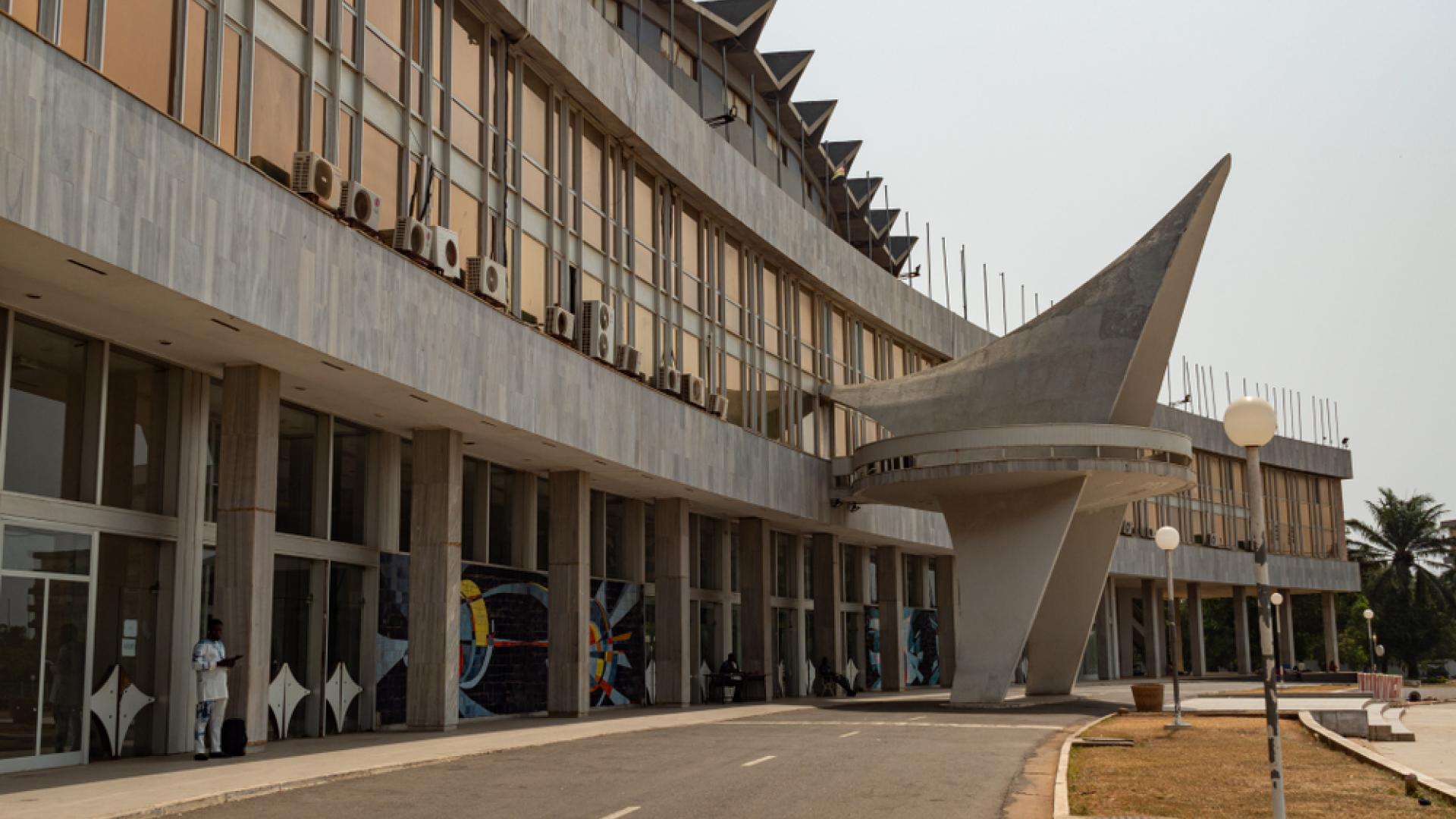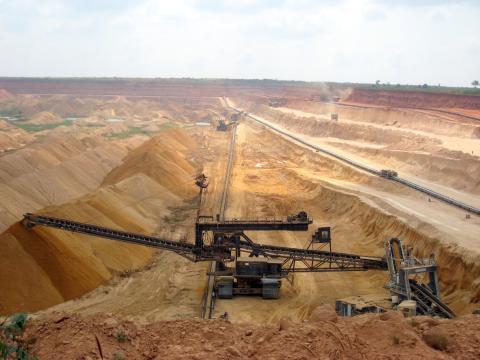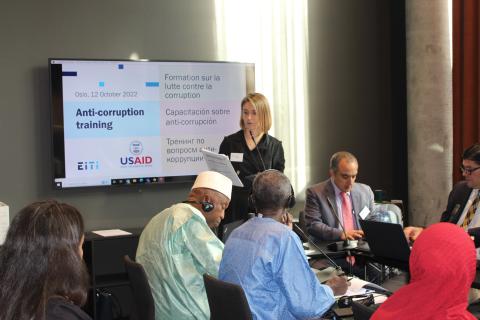
Overview and role of the EITI
Togo’s extractive sector is primarily focused on mining and quarrying, with no ongoing extraction of proven oil reserves due to decreased investment in the hydrocarbon sector. Togo’s mining sector is primarily centred around the production of phosphate, led by the state-owned enterprise Société Nouvelle des Phosphates du Togo (SNPT). Togo also produces gold, bauxite, marble, chromite, limestone, clinker, zinc, iron ore and manganese. ITIE Togo also includes groundwater extraction, transition minerals and rare earths in the scope of its EITI reporting.
Togo joined the EITI to support its objectives of attracting foreign direct investment and increasing transparency in the production and export of phosphates and marketing of minerals. With the gradual increase in phosphate production, the EITI is contributing to reforms and debates around contract transparency as well as social and environmental issues.
Economic contribution of the extractive industries
- 2.54%
- to government revenues
- 13.54%
- to exports
- 1.41%
- to GDP
- 1.4%
- to employment
Innovations and policy reforms
- In 2020, ITIE Togo EITI conducted a study on mining titles following the PDGM project supported by the World Bank and the launch of the online mining cadastre.
-
The multi-stakeholder group collected information from municipalities on revenues that had been reallocated to them from extractive company tax payments for the first time in the 2021 EITI reporting. The following taxes were concerned: quarry royalty, compulsory contribution from the SNPT and direct payments to municipalities and local precincts.
-
In 2022, Togo adopted a legal framework mandating beneficial ownership disclosures through by-law (arrêté) n°25 /MEF/SG/OTR/CG “specifying the procedures for identifying, declaring and retaining information on beneficial owners.” The by-law provides for a central beneficial ownership register kept by the financial administration.
We must work together to ensure that the EITI becomes a model of good management not only in the extractive sector but also in the management of state finances.
Extractive sector data
Production and exports
Revenue collection
Revenue distribution
Top paying companies
Extractive sector management
Tax and legal framework
Togo’s mining industry is governed by the 1996 Mining Code, as amended by Law no. 2003-12 of 4 October 2003 which regulates the procedure for the award and transfer of mining rights, artisanal mining provisions, and the participation of extractive companies in the extraction and production of mineral resources.
Additional legislative texts that govern the mining sector include the General Tax Code (CGI), the Book of Tax Procedures (LPF), the National Customs Code (CDN) promulgated by Law N°2018-007 and the Investment Code promulgated by Law N°2019-005.
Extractive companies are not subject to a specific tax regime. Except for the tax advantages provided for in the Mining Code or any specific regime that may be negotiated in the framework of a mining convention, the holders of mining titles are subject to the General Tax Code (CGI).
Payments by extractive companies are made to several financial authorities, mainly the Togolese Revenue Office (OTR) for common taxes and duties and the General Directorate of Mines and Geology (DGMG) for specific payments.
Licenses and contracts
Mining licenses can be requested through an application filed with the Ministry of Mines and Energy (MME). The Ministry issues licenses on a first come first served basis in accordance with the Mining Code.
-
Exploration and artisanal permit applications need to be filed with the Director General of Mines and Geology (DGMG).
-
Research permit, building materials permit and small-scale and large-scale permit applications need to be filed with the Minister of Mines.
Applicants are set to receive responses within 30 days of the submission of their submission. The details of the documents to be submitted as part of the application are set out in the list of documents required in the Ministry of Mines and Energy files (Annex 8 2021 EITI Report). The procedure for awarding licences and contracts is published on the Service Public de l'administration Togolaise website.
In December 2019, the Ministry of Mines and Energy (MME) launched a Mining Cadastre. The portal aims to collect and process the different types of permit applications for mineral resources. In accordance with Law No. 2014–009 (Article 9), extractive contracts and the procedure for awarding them are published on the DGMG website. Some contracts are available on resourcecontracts.org.
Beneficial ownership
The government adopted the definition of a beneficial owner in accordance with the EU’s Fourth Money Laundering Directive in 2018. Togo’s EITI multi-stakeholder group defines a beneficial owner as any individual holding an interest of 25% or more in a company.
The Personal Property Credit Register (RCCM) and the Business Formalities Centre (CFE) website provide basic information on legal persons accessible to the public. Despite a beneficial ownership information collection form, the RCCM has no mechanism for collecting comprehensive beneficial ownership information as of 2022.
In 2022, Togo adopted a legal framework mandating beneficial ownership disclosures through by-law (arrêté) n°25 /MEF/SG/OTR/CG “specifying the procedures for identifying, declaring and retaining information on beneficial owners.” The by-law provides for a central beneficial ownership register kept by the financial administration. Article 26, however, stipulates that “public authorities and administrations have access to the information held in central beneficial ownership register.” A recent anti-corruption report for EITI Togo commissioned by the Togo multi-stakeholder group and the International Secretariat notes that a BO database is in development to make the beneficial ownership registry operational and that it will be kept by the RCCM.
Revenue distribution
The 2018 General Tax Code (amended by law n° 2020-019 of 22 December 2020 and law n°2022-022 of 27 December 2022) provides for the reallocation of certain taxes to regions and communities. Taxes perceived by the Togolese Revenue Office (OTR), the state and other structures are redistributed according to rates set out in decree n° 2021-039/PR.
Taxes such as the single business tax, patent rights and property taxes are divided between municipalities, the state budget and the Togolese Revenue Office (OTR), in accordance with rates set out in the General Tax Code. Subnational payments to municipalities are levied at the discretion of the local authorities. The 2021 Togo EITI Report has collected information from municipalities on revenues collected from extractive companies for the following taxes: quarry royalty, compulsory contribution from the SNPT and direct payments to municipalities and local precincts.
EITI implementation
Governance
ITIE Togo is administered by the Togo Multi-Stakeholder Group (MSG), also known as the Comité de pilotage, as well as the Conseil national de supervision. The MSG, chaired by the Minister of Energy and Mines, Mila Aziablé, monitors Togo’s EITI implementation in accordance with the guidelines defined by the Conseil national de supervision. It also ensures that the strategic and political decisions of the Conseil national de supervision are respected and implemented. It is composed of representatives from government, industry and civil society.
Timeline
Government announces commitment to join the EITI
Multi-stakeholder group is formed
Candidature application is submitted
Togo joined
2010 EITI Report published
Report
2011 EITI Report published
Report
Designated a compliant country
2012 EITI Report published
Report
2013 EITI Report published
Report
2014 EITI Report published
Report
2015 EITI Report published
Report
Validation
Validation documents
2017 EITI Report published
Report
Validation
Validation documents
2018 EITI Report published
Report
2019 EITI Report published
Report
2020 EITI Report published
Report
2021 EITI Report published
Report
Validation
Togo was found to have made meaningful progress with considerable improvements in implementing the 2016 EITI Standard in September 2020, following its second Validation. Togo has fully addressed five of the seven corrective actions identified in its previous Validation. Togo’s third Validation started in January 2024 against the 2019 EITI Standard.
Scorecard
Key documents

Togo Anti-Corruption Report

Togo 2021 EITI Report

Togo EITI 2021-2025 work plan

Togo 2021 EITI Annual Progress Report

Togo 2020 EITI Report

Togo 2019 EITI Report







